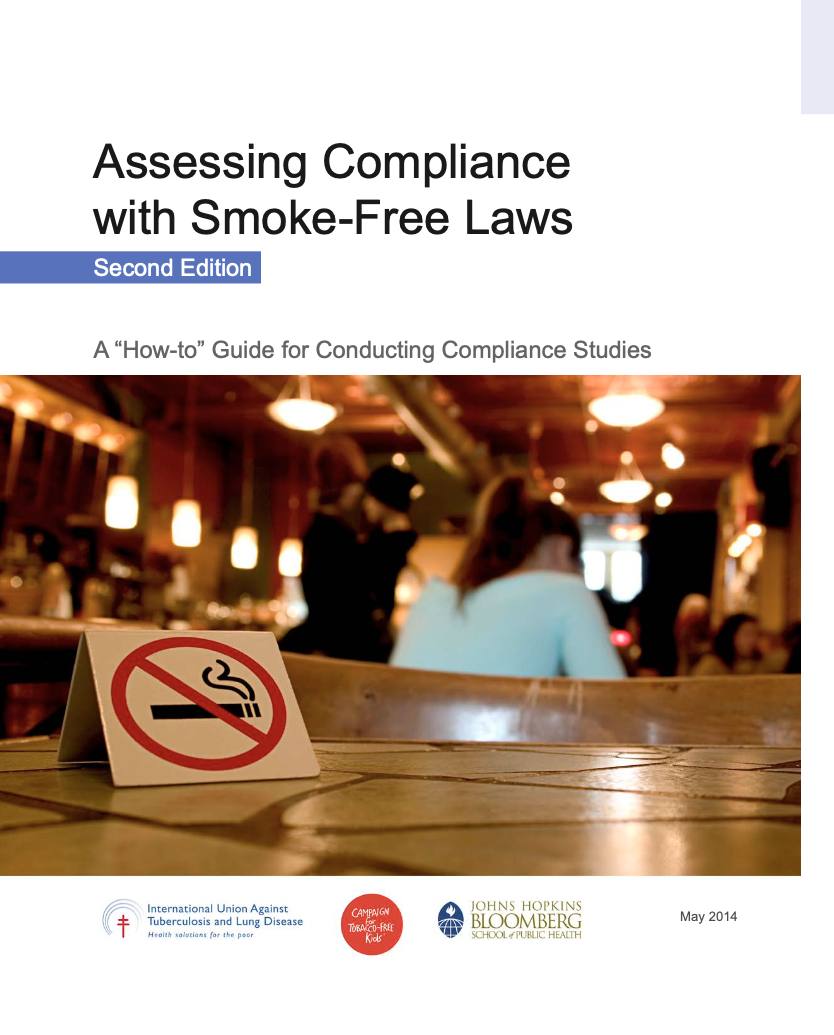This guide promotes best practice for conducting studies of compliance with smoke-free laws, including the rationale for doing or not doing a study, the knowledge and resources needed, and how to design the study and effectively disseminate the results. For those with research training and experience, the guide will provide useful insights into the particular issues involved in researching compliance with smoke-free laws. For those with less experience or training in research, the guide provides detailed guidance to help design a study that effectively and reliably assesses compliance.
Recommendations in the guide are based on experience from other jurisdictions and on best practice when available. However, the approach will need to be adapted to factors specific to each context, and should be done in consultation with people who are knowledgeable about the jurisdiction and the smoke-free law under review, and who have research experience and/or training.
Recent Abstracts
Testimonials: Personal stories that have the power to save lives on the road
Knowledge, Attitudes, and Practice Study on Lead Poisoning and Pollution in Indonesia
Improving Civil Registration and Vital Statistics Systems in French-Speaking Countries: Opportunities and Challenges
Strengthening the Civil Registration and Vital Statistics (CRVS) System in Colombia
Estimation of the direct and indirect costs attributable to alcohol consumption in Brazil
Guidance for Collection and Processing of Cause-of-Death Data in the Civil Registration and…
Vital Strategies: Reimagine Public Health
Public perceptions of emissions testing in Jakarta, Indonesia
Cost-Benefit Analysis for Air Pollution Control Strategies in Jakarta
Key Messages on Alcohol Harms and Policy Solutions
